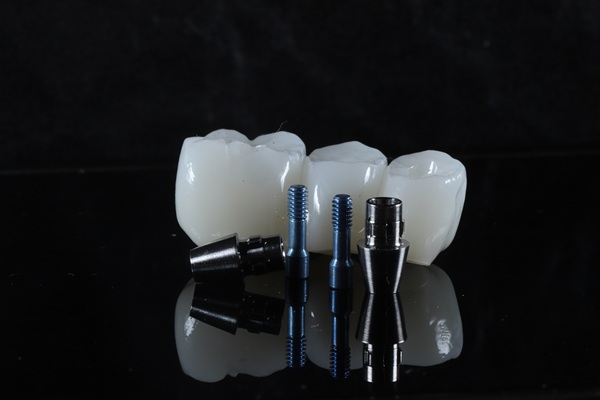How Good Oral Health Can Improve Heart Health
 A general dentist often focuses on the importance of oral hygiene and how it can help the overall health of patients. There are many patients who are unaware of the impact that oral health can have on the heart’s health. The following explains how poor oral hygiene may be connected to the development of heart issues.
A general dentist often focuses on the importance of oral hygiene and how it can help the overall health of patients. There are many patients who are unaware of the impact that oral health can have on the heart’s health. The following explains how poor oral hygiene may be connected to the development of heart issues.
The connection between oral and heart health
Oral health has been shown to have an effect on a patient’s heart health. Poor oral hygiene can result in gum disease. In some cases, bacteria and germs from the mouth spread through the bloodstream and to other parts of the body; this can cause serious inflammation and bacterial infections. The inflammation may contribute to the development of many heart conditions. A bacterial infection in the bloodstream can be harmful to the heart valves and may be dangerous for those who have artificial heart valves.
Gum disease’s role in heart disease
Periodontal disease is an infection that develops in the gum tissues and jawbone. The condition is caused by plaque that builds up on the teeth and may lead to tooth loss. It is a common disease and can often remain undetected for long periods of time as some dental patients do not notice any of the typical signs of gum inflammation.
Moderate and severe gum disease have been linked to numerous cardiovascular conditions. Patients with periodontal disease are more at risk to develop atherosclerosis, a condition that causes a narrowing and hardening of the arteries. Atherosclerosis puts patients at a higher chance of suffering from a heart attack or stroke. Endocarditis, an infection of the heart’s lining that can cause life-threatening damage, has also been connected to gum disease.
Symptoms
Patients should be aware of the symptoms of periodontal disease and visit a general dentist as soon as possible if they develop any of the following warning signs:
- Gums that bleed when brushing and flossing
- Red, swollen, or sore gums
- Bad breath
- Pus around the gums
- Gums that pull away from the teeth or make the teeth appear longer
- Loose teeth
Prevention
Preventing the development of gum disease is crucial. Proper oral hygiene, which includes brushing twice a day and flossing daily, is one of the easiest ways to avoid periodontal disease. Patients should also see a general dentist twice a year for routine cleanings and examinations to ensure the teeth and gums are in optimal health. Taking proper care of the teeth may reduce the risk of developing heart disease for many patients.
Conclusion
Research shows a patient’s oral health can have a connection to heart health. Gum disease may lead to the possibility of heart disease. It is vitally important for patients to practice proper oral hygiene habits to aid in the prevention of serious heart conditions. Routine visits to a general dentist can help patients protect their overall health as well as maintain a beautiful and healthy smile.
Request an appointment or call My Smile Family Dental at 714-408-4343 for an appointment in our Santa Ana office.
Recent Posts
A general dentist can help you to get past any toothache. Toothaches tend to occur as the worst possible times and they are usually an indicator there is something wrong with that specific tooth.Toothaches are often the result of a tooth being damaged by decay or trauma. It can also be a symptom of an…
If a general dentist recommends fluoride treatments, patients may express concerns about the lasting effects of fluoride. They may also wonder whether eating and drinking are possible immediately afterward. Fortunately, fluoride is one of the easiest dental treatments to undergo with little to no waiting period and great benefits in the long term. Just a…
In recent years, more patients have been asking general dentist professionals about straighter teeth. Orthodontic treatment has come a long way in the last decades. Patients may think that traditional braces are the only option, but clear aligners and appliance therapy are also available now. When having this conversation, it is important that patients discuss…


